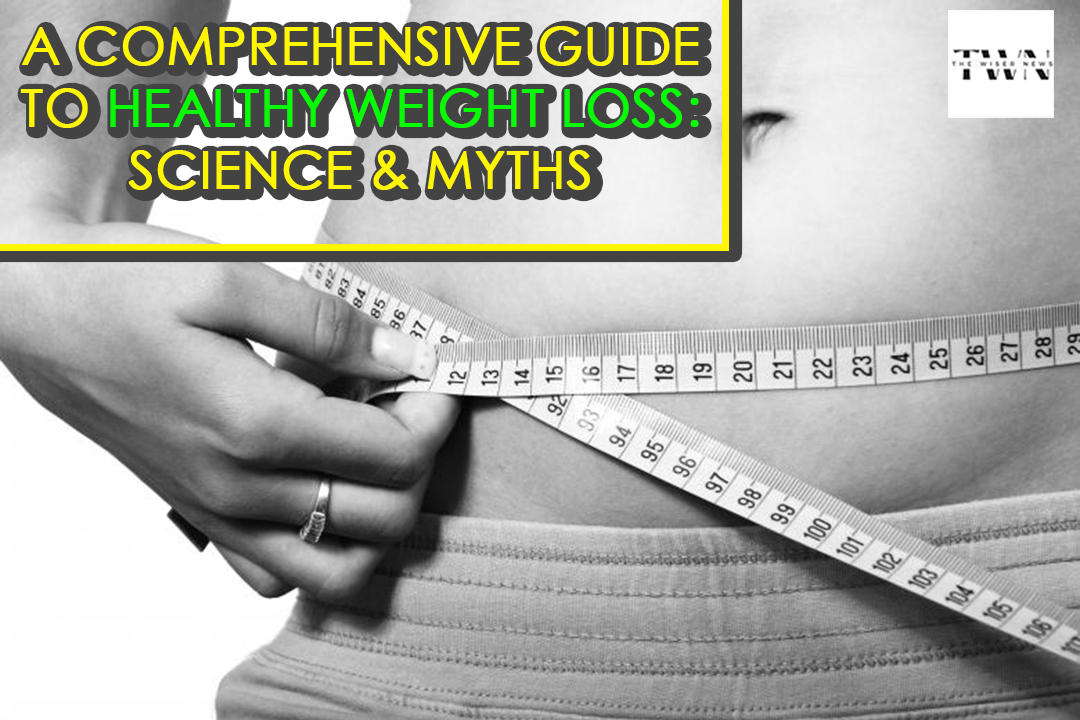A Comprehensive Guide to Healthy Weight Loss: Science & Myths

Breaking Down Calorie Balance, Diet, Exercise, and More...
Understanding the Basics
To comprehend the concept of weight loss, think of your body as a "calorie bank." The calories you consume accumulate here, while the calories you burn are deducted from your stored calories. When these stored calories are converted into fat, your weight increases. To lose weight, you must create a calorie deficit by either reducing your calorie intake or increasing your calorie expenditure through exercise.Calorie Expenditure
Calories are burned for every bodily function, even while sleeping. This is known as Basal Metabolic Rate (BMR). Your BMR depends on factors such as age, height, weight, and muscle mass. An online calculator can help you determine your BMR. Understanding your BMR allows you to estimate the number of calories your body burns at rest.Thermic Effect of Food (TEF)
Not all calories are created equal. The Thermic Effect of Food (TEF) refers to the energy your body uses to digest and process the food you consume. Some foods have a low TEF, like fats and oils, while others have a high TEF, such as whole grains, protein-rich foods, fruits, and vegetables. While the idea of "negative calorie" foods is a myth, the TEF concept emphasizes the importance of nutrient-dense, high-TEF foods for healthy weight management.Balanced Nutrition
For healthy weight loss, it's crucial to focus on balanced nutrition. Your body requires six essential nutrients: proteins, carbohydrates, fats, vitamins, minerals, and water. A well-rounded diet ensures you provide your body with the nutrients it needs for optimal function.
Carbohydrates: Carbs are a vital energy source. Contrary to some popular beliefs, they should not be entirely avoided. Choose healthy carbs from sources like whole grains, fruits, and starchy vegetables.
Fats: While fats are often associated with weight gain, they are essential for various bodily functions, including vitamin absorption. Opt for healthy fats like monounsaturated and polyunsaturated fats found in nuts, olive oil, and avocados.
Proteins: Protein is crucial for muscle building and repair. However, excessive protein intake can also be stored as fat, so moderation is key.
A Balanced Diet
The Acceptable Macronutrient Distribution Ranges (AMDR) provide guidance on the percentage of daily calories that should come from each macronutrient:
- Carbohydrates: 45-65%
- Fats: 20-35%
- Protein: 10-35%
The specific proportions within these ranges depend on individual factors such as age, activity level, and health goals. Consult a dietitian for personalized advice, or aim to stay within these ranges for a balanced diet.
What to Eat and What to Avoid
Eat a variety of foods, including whole grains, lean proteins, fruits, and vegetables. Opt for high-satiety foods, like legumes, high-fiber items, and protein-rich foods, to help you feel full despite consuming the same number of calories.
Avoid refined flour, added sugars, and unhealthy fats. These include items like white bread, sugary snacks, and trans fats found in deep-fried foods. Reducing your consumption of processed and packaged foods is crucial for weight management.
Exercise and Physical Activity
Exercise plays a significant role in healthy weight loss. Incorporate a combination of cardiovascular exercises, strength training, and stretching exercises into your routine. These activities help you burn calories, build muscle, and improve your overall fitness. Consistency is key, so choose exercises you enjoy to maintain a sustainable regimen.
Stress Management
Stress can negatively impact weight gain. High stress levels lead to increased cortisol production, which can affect metabolism and lead to cravings for unhealthy foods. To manage stress, engage in activities like meditation, sports, or spending quality time with friends and family.
Conclusion
Healthy weight loss is achievable through a balanced diet, regular exercise, stress management, and a sustainable approach. Remember that spot reduction is a myth, and being healthy should not be based on unrealistic beauty standards. Focus on nurturing your body with nutrient-dense foods, staying active, and maintaining a positive, stress-free lifestyle to achieve your weight loss goals while prioritizing your overall health and well-being.
12 Month Ago
Robbers Loot Jewelry Shop in Mahottari; Traders Sh..
12 Month Ago
Trump and Putin to Discuss Ukraine on Tuesday
YOU MAY ALSO LIKE THIS
Top Free AI Websites in 2025 and Their Key Features
Artificial Intelligence continues to revolutionize how we work, create, and communicate, and 2025 offers an impressive array of fr..
3 Month Ago
2025 Global Entertainment Industry Sees Rising Streaming Subscriptions..
The global entertainment industry in 2025 continues to evolve rapidly with streaming platforms leading the way in reaching new aud..
4 Month Ago
Global Carbon Emissions Hit Record High in 2025 Despite Climate Effort..
In 2025, global carbon dioxide emissions from fossil fuels reached a record high, increasing by 1.1% compared to the previous year..
4 Month Ago

_1763308546.png)
 (1)_1763140461.png)
_1763140142.png)

